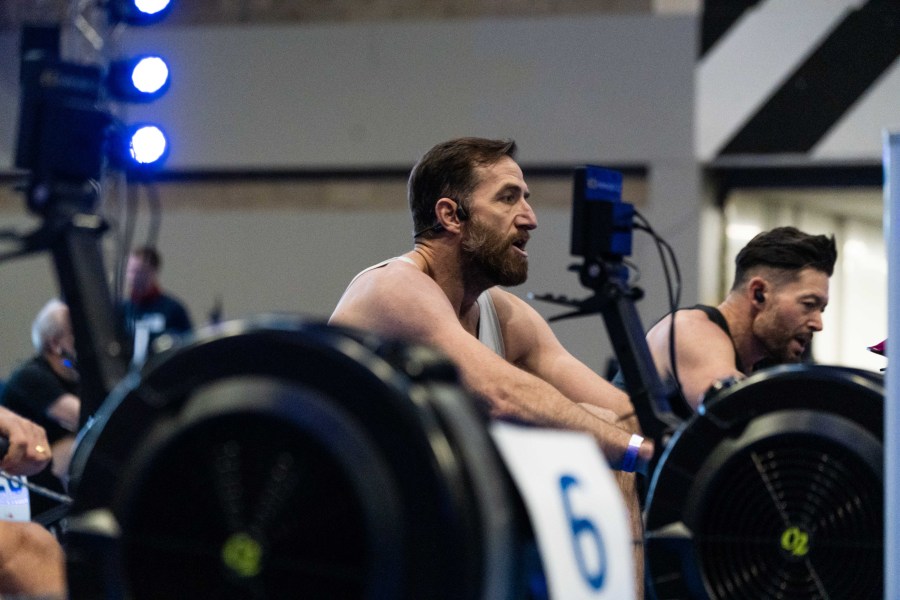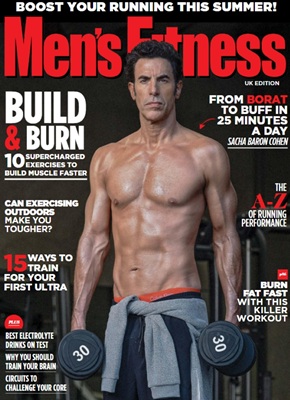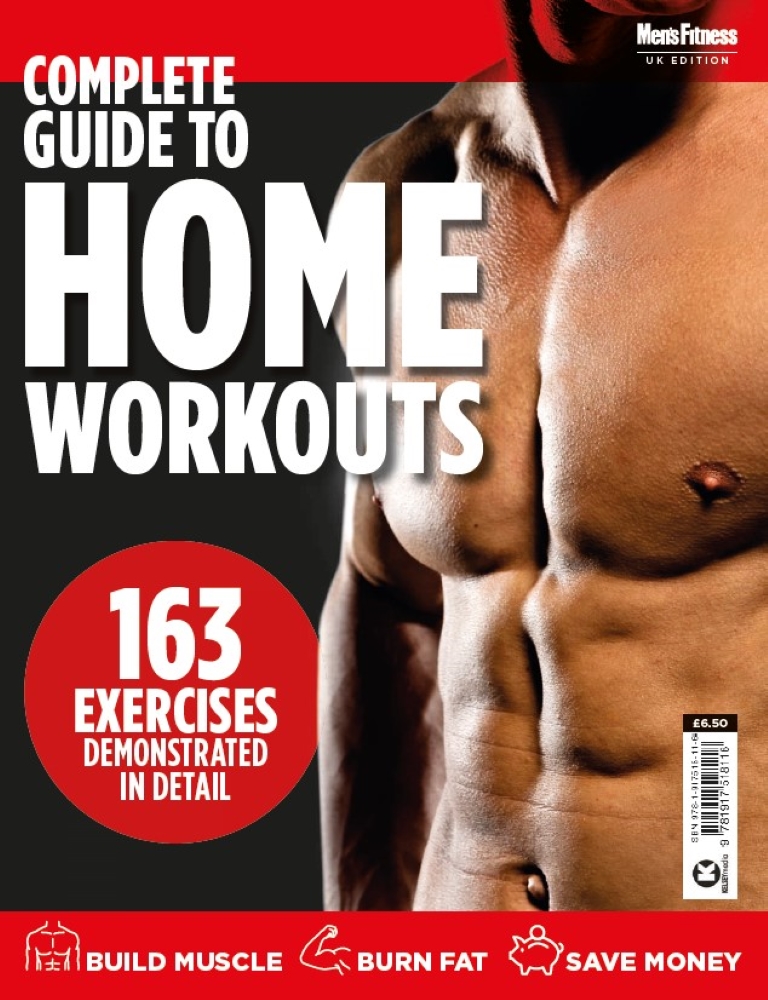Despite having a heart condition, British Indoor Rowing Champion Graham Benton has defied the odds to win multiple world titles
INTERVIEW: Rob Kemp
The British Rowing Indoor Championships (BRIC) returns on December 7-8, 2024, as part of the FitFest event at Birmingham’s NEC. With over 2000 competitors from various countries, each vying to be crowned British Rowing Indoor Champion the event is expected to attract upwards of 15,000 attendees and competitors across five major fitness disciplines.
Besides rowing, the event will include powerlifting, the England Weightlifting Championships, obstacle course racing, and the AHX Finals Weekend.
British indoor rower Graham Benton, 51, went from using a rowing machine in the gym at the end of a weights session to becoming a British, European and World Champion – winning the BRIC a record 17 times. Benton now competes in the 50-54 age category and remains the man to beat. At last year’s BRIC he left the race floor with yet another record, finishing the Masters 50-54 Open 2,000m in just 6:05.00. Ahead of the upcoming BRIC 2024, Men’s Fitness spoke to him to discover what it takes to become a World Champion.
Men’s Fitness: Graham, did you really just go from using the rower for a bit of cardio to taking on the world’s best?
Graham Benton: Pretty much! I started indoor rowing back in 2002 with no prior experience, just a love for fitness. I’d get on the rowing machine after a weight session and got quite into it. When I started to look into it more, I discovered this whole indoor rowing community and discovered that I was recording decent scores, only seconds off of record times.
Over time, I got more involved, began competing at national and international levels, and never looked back. Now, I’m here, training consistently, and keeping competitive even as I manage the challenges that come with age.
MF: Can you tell us about your training regimen?
GB: I train daily, with a strong emphasis on listening to my body, especially as I get older. My routine used to be relentless, but now, recovery is just as crucial. Nutrition-wise, I focus on lean proteins and vegetables but allow myself some indulgences – a burger here and there, or a drink occasionally. Keeping balance is key to staying motivated and fit over the long term.
MF: What keeps you motivated after so many years in the sport?
GB: For me, it’s the drive to push my limits. Whether I’m racing or not, I enjoy working towards personal goals. Training has become a constant in my life, and the satisfaction of knowing I’m still competitive is invaluable. That feeling of accomplishment keeps me going. To be a Champion in something is a huge spur to keep doing it, and indoor rowing is structured in a way that no matter what age or ability there’s an opportunity for you to compete and excel.
MF: You manage a heart condition while competing. How do you balance this with your training?
GB: I was diagnosed with ventricular tachycardia a few years ago and had to modify my training, especially in the beginning, to keep my heart rate within safe limits. But with medication and guidance, I’ve adjusted. These days, my back actually limits me more, but I’m still committed to pushing forward.
MF: Injuries are part of any athlete’s life. How do you manage setbacks and adapt your goals?
GB: Injuries are definitely part of the sport. Recently, I hurt my back, which limited my rowing, so I’ve turned to cycling to maintain my fitness. My coach and I have adapted my training around injuries, focusing on consistency. The key is flexibility in both your mindset and approach.
MF: Who are some of the athletes or clubs to watch at the BRIC this year?
GB: Expect fierce competition! Notable clubs include MAD Team, Fitness Matters, and Sub6. One competitor I’m watching closely in my event is South African rower Luke Wollenslager—an incredibly tough contender. We’ve had some thrilling races over the years, and I’m looking forward to seeing how this year shapes up.
MF: Any advice for older athletes or newcomers looking to start indoor rowing?
GB: Definitely. Start gradually and listen to your body. Rowing is great because it’s accessible at any age. Consistent, smart training will build a solid base and help avoid burnout. There’s always room to improve, no matter when you start.
• For more information or to register, visit British Rowing Indoor Championships registration closes on November 26 for Saturday events, while slots for Super Sprint Sunday will be available until the day of the event, space permitting.










